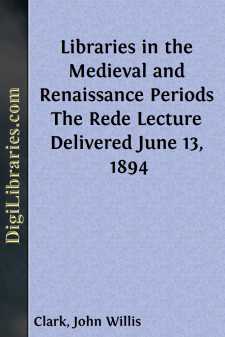Categories
- Antiques & Collectibles 13
- Architecture 36
- Art 48
- Bibles 22
- Biography & Autobiography 816
- Body, Mind & Spirit 145
- Business & Economics 28
- Children's Books 18
- Children's Fiction 14
- Computers 4
- Cooking 94
- Crafts & Hobbies 4
- Drama 346
- Education 58
- Family & Relationships 59
- Fiction 11834
- Foreign Language Study 3
- Games 19
- Gardening 17
- Health & Fitness 34
- History 1378
- House & Home 1
- Humor 147
- Juvenile Fiction 1873
- Juvenile Nonfiction 202
- Language Arts & Disciplines 89
- Law 16
- Literary Collections 686
- Literary Criticism 179
- Mathematics 13
- Medical 41
- Music 40
- Nature 179
- Non-Classifiable 1768
- Performing Arts 7
- Periodicals 1453
- Philosophy 66
- Photography 2
- Poetry 897
- Political Science 203
- Psychology 45
- Reference 154
- Religion 516
- Science 126
- Self-Help 86
- Social Science 82
- Sports & Recreation 34
- Study Aids 3
- Technology & Engineering 59
- Transportation 23
- Travel 463
- True Crime 29
Our website is made possible by displaying online advertisements to our visitors.
Please consider supporting us by disabling your ad blocker.
Libraries in the Medieval and Renaissance Periods The Rede Lecture Delivered June 13, 1894
Description:
Excerpt
LIBRARIES.
A library may be considered from two very different points of view: as a workshop, or as a Museum.
FEELINGS ABOUTThe former commends itself to the practical turn of mind characteristic of the present day; common sense urges that mechanical ingenuity, which has done so much in other directions, should be employed in making the acquisition of knowledge less cumbrous and less tedious; that as we travel by steam, so we should also read by steam, and be helped in our studies by the varied resources of modern invention. There lies on my table at this present moment a Handbook of Library Appliances, in which fifty-three closely printed pages are devoted to this interesting subject, with illustrations of various contrivances by which the working of a large library is to be facilitated and brought up to date. In fact, from this point of view a library may be described as a gigantic mincing-machine, into which the labours of the past are flung, to be turned out again in a slightly altered form as the literature of the present.
LIBRARIES.If, on the other hand, a library be regarded as a Museum—and I use the word in its original sense as a temple or haunt of the Muses—very different ideas are evoked. Such a place is as useful as the other—every facility for study is given—but what I may call the personal element as affecting the treasures there assembled is brought prominently forward. The development of printing, as the result of individual effort; the art of bookbinding, as practised by different persons in different countries; the history of the books themselves, the libraries in which they have found a home, the hands that have turned their pages, are there taken note of. Modern literature is fully represented, but the men of past days are not thrust out of sight; their footsteps seem to linger in the rooms where once they walked—their shades seem to protect the books they once handled. What Browning felt about frescoes may be applied—mutatis mutandis—to books in such an asylum as I am trying to portray:
Wherever a fresco peels and drops,Wherever an outline weakens and wanes
Till the latest life in the painting stops,
Stands One whom each fainter pulse-tick pains:
One, wishful each scrap should clutch the brick,
Each tinge not wholly escape the plaster,
A lion who dies of an ass's kick,
The wronged great soul of an ancient Master.
ROMAN
It may be safely asserted that at no time has a love of reading, a desire to be fairly well-informed on all sorts of subjects, been so widely diffused as at the present day. As a necessary consequence of this the 'workshop' view of a library has been very generally accepted. I have no wish to undervalue it; I only plead for the recognition of another sentiment which may at times be overlaid by the pressure of daily avocations. In Cambridge, at least, there is no fear that it should ever be obliterated altogether, for we have effected a happy alliance between the present and the past, by which neither is neglected, neither is unduly prominent. This being the case, it has occurred to me that I may be so fortunate as to interest a Cambridge audience while I set before them some of the results at which I have arrived in investigating the position, the arrangement, and the fittings of libraries in the medieval and renaissance periods. It will, of course, be impossible to attempt more than a sketch of so extensive a subject, and I fear that I must omit the contents of the bookcases altogether; but I shall hope, by a selection of typical illustrations, to make you realise what some of the libraries, monastic, public, or private, that fall within my period were like.
LIBRARIES....

